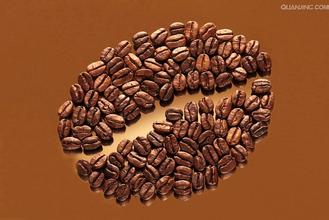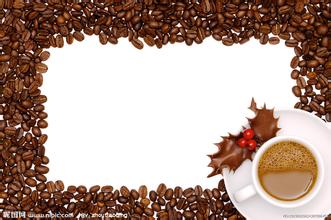Is coffee a specialty of Kenya? Kenyan coffee tree
The Kenyan government takes the coffee industry extremely seriously, and it is illegal to cut down or ring coffee trees here. Kenya's coffee buyers are world-class buyers of premium coffee, and no country grows, produces and sells coffee as consistently as Kenya. All coffee beans are first acquired by the Coffee Board of Kenya (CBK), where they are appraised, graded and then sold at weekly auctions, where they are no longer graded. The Kenya Coffee Board acts only as an agent, collecting coffee samples and distributing them to buyers so that they can determine price and quality. Nairobi auctions are held for private exporters and the Kenya Coffee Board pays growers below-market prices. The best coffee grade is bean berry coffee (PB), followed by AA++, AA+, AA, AB, etc., in that order. Fine coffee is shiny, delicious and slightly aromatic. The auction is also organized to meet the needs of the distributor. These auctions usually sell small quantities (3-6 tons each), with samples bearing the grower's logo for buyers to appreciate. After auction, exporters pack according to different flavors, different qualities and quantities required by blenders. This provides a great deal of flexibility for the deployer. Quality-conscious germans and nordics are long-term buyers of kenyan coffee.
On an international scale, the growth in Kenyan coffee production has been remarkable, with exports rising from 800,000 bags in 1969- 1970 to 2 million bags in 1985-1986. The average yield is stable at 1.6 million bags, with an average yield of about 650 kg/ha. Even before the coffee price spike, the average price of coffee in Kenya had been rising. 1993--1994 Prices are 50% higher in 2010 than they were 12 months ago. Price increases are mainly the result of increased demand.
Kenyan coffee
Kenya Coffee
Some buyers, especially Japanese ones, have complained about Kenya's coffee system. Some traders say the quality of coffee in the country has declined, pointing out that buying directly from farmers may be one way to improve quality. Either way, kenya's detailed rules and procedures are a model for all coffee-producing countries.
Kenyan coffee gained further fame with the Hollywood blockbuster Out of Africa.
In the film Merrill. Mary Streep plays Karen, a writer and coffee plantation owner. Many people probably still remember the breathtaking views and magnificent sunsets in the film, but even more memorable is Karen's dream of owning a coffee plantation in Africa.
Kenya Coffee-Flavors
Kenyan coffee
Kenya Coffee
Aromatic, rich, fruity, rich and perfect on the palate. Kenya coffee has a wonderful fruity flavor, with a blackberry and grapefruit flavor, is a favorite of many coffee lovers. This coffee has an excellent medium purity, crisp and refreshing taste. Fresh flavor and best for iced coffee in summer. When tasting this coffee, if it is accompanied by fruit with acidity such as grapefruit, it will definitely give me the best coffee experience. "Less coffee, more fruit tea" is the common feeling many people have about this light roasted Kenyan coffee.
In addition to the obvious and fascinating fruit acidity, Kenya coffee is mostly grown by small coffee farmers in a variety of different environments, with different climates and rainfall each year, bringing a variety of distinct and unique personalities. Take the AAPlus grade "KenyaAA+Samburu" as an example. Samburu from 2001 has a strong aroma of dark plum, which is not high in acidity and has a strong taste. Samburu newly harvested in winter of 2002 presents a completely different flavor. Mulberry berry and green plum, accompanied by a little spicy flavor. After drinking, it has a sweet aroma of green tea. The acidity is slightly higher than that of the previous year, and the taste is still strong. The usual Kenyan flavors are not intense, but have fruity bright flavors, some with spices and some with red wine aromas. Kenya is just like that, so coffee fans are full of expectations and surprises!
Kenya Coffee-Introduction
Kenyan coffee
Kenya Coffee
Kenya's northern neighbor is Ethiopia, where the Arabica coffee tree originated, but it was not until the early twentieth century that coffee cultivation began. In the 19th century, missionaries introduced Arabica trees from Yemen, but did not plant them in large quantities. It was not until 1893 that they introduced the ancient Brazilian bourbon coffee seeds to cultivate coffee on a large scale. In other words, Kenyan coffee has Brazilian ancestry. Due to differences in water, climate and processing methods, Kenyan beans have a completely different flavor from Brazilian beans. Brazilian coffee is grown at low altitudes, with soft texture and no obvious fruit acid flavor. Kenyan coffee trees, on the other hand, are concentrated on the slopes near Mount Kenya, between 4,000 feet and 6,500 feet above sea level, which is suitable for coffee bean flavor development, because the mountain temperature is lower, the growth is slower, the aromatic components of coffee beans are fully developed, the fruit acid flavor is more obvious, and the texture is harder. In addition, Kenya was a British colony in the early days, and the British have established a complete system of cultivation and quality control. After Kenya became independent, the coffee industry was on an established basis.
There are two types of coffee farms in Kenya. One is a large plantation covering more than five acres, but the average elevation is lower. For Kenya coffee, the coffee beans of the large farm are only moderate in quality. The best Kenyan beans are produced in small farms, mostly located in the foothills or hillsides above 5,000 or 6,000 feet. Each small farmer can only produce about 20 to 70 bags per season. They cannot afford to invest in expensive washing and treatment plants. However, small farmers are very united. Hundreds or thousands of families set up cooperative farms. The washing and treatment plants are funded by the government. The coffee fruits picked by small farmers are sent to cooperative farms for unified processing. First, the half-ripe or rotten fruits are removed, and then peeled, fermented, The process of breaking down the pulp, removing the beans, drying and polishing is supervised by the official Coffee Authority, which is quite rigorous and ensures the quality of Kenyan coffee. Kenya bean washing processing technology and high standard pipe, has been a model of bean producing countries

Important Notice :
前街咖啡 FrontStreet Coffee has moved to new addredd:
FrontStreet Coffee Address: 315,Donghua East Road,GuangZhou
Tel:020 38364473
- Prev

Coffee tastes better in that country. What are the categories of coffee?
The mission of the Bali ambassador's visit, the coffee is so delicious is the use of circuitous coffee diplomacy to disintegrate the French dynasty, which is preparing to move eastward. Luxurious and tasteful ornaments, wonderful music and well-cooked food Ambassador Ali's social gathering immediately became a popular place in Paris. Everything there is so admirable and intoxicated. And
- Next

Is Kenya African beans: there are several brands of kenya coffee Kenyan coffee beans.
Ethiopia is the birthplace of the famous Arabica coffee beans, and people have always maintained the tradition of harvesting wild coffee beans. The coffee garden at an altitude of more than 1500 meters has formed a unique coffee style after thousands of years of evolution and adaptation. Ethiopian coffee grown in the natural wild environment is called wilderness coffee, which retains the most primitive and natural taste of coffee beans.
Related
- Does Rose Summer choose Blue, Green or Red? Detailed explanation of Rose Summer Coffee plots and Classification in Panamanian Jade Manor
- What is the difference between the origin, producing area, processing plant, cooperative and manor of coffee beans?
- How fine does the espresso powder fit? how to grind the espresso?
- Sca coffee roasting degree color card coffee roasting degree 8 roasting color values what do you mean?
- The practice of lattes: how to make lattes at home
- Introduction to Indonesian Fine Coffee beans-- Java Coffee producing area of Indonesian Arabica Coffee
- How much will the flavor of light and medium roasted rose summer be expressed? What baking level is rose summer suitable for?
- Introduction to the characteristics of washing, sun-drying or wet-planing coffee commonly used in Mantenin, Indonesia
- Price characteristics of Arabica Coffee Bean Starbucks introduction to Manning Coffee Bean Taste producing area Variety Manor
- What is the authentic Yega flavor? What are the flavor characteristics of the really excellent Yejasuffi coffee beans?

